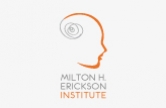HYPNOSIS AND OBSESSIVE-COMPULSIVE DISORDER
Hypnotic therapy to treat obsessive-compulsive disorder
Obsessive-compulsive disorder (OCD) is included among anxiety disorders and is characterized by obsessions and/or compulsions that are often egodystonic1.
Obsessions are not just frequent thoughts or normal worries, they are in fact thoughts, impulses, images or recurrent and persistent ideas that are perceived as intrusive, inappropriate and as a source of stress and anxiety. Such contents, extremely difficult to drive away once occurred, are so invasive that they often appear without subject’s will.
Compulsions are, on the other hand, repetitive behaviors or mental actions – such as counting, praying, repeating words – that the subject feels forced to act in response to an obsession or as a consequence of rigid internal rules. Such actions are often carried out in a dissociative state (that is a state of consciousness in which the subject feels that he is acting automatically, that he has no control over his/her own actions that sometimes can even be forgotten). These rituals may also be unrelated to the feared negative events (ex. counting up to 100 in order to prevent a car accident from occurring to a loved one).
The disorder can severely compromise the quality of life of the affected individuals because both obsessions and compulsions, especially if not adequately treated, tend to occupy more and more time at the expense of everyday activities.
Despite the fact that the most effective evidence-based therapy according to scientific literature appears to be cognitive-behavioral therapy, a portion of patients ranging from 30% to 60% does not respond to treatment. Some authors2,3 think that this gap can be filled with an approach that, along with enhancing the ability of patients to manage anxiety, faces the elements that cause the disorder. In a recent article4 three cases of patients affected by OCD and treated with hypnotic techniques are presented.
These patients, once they had reached certain results thanks to the application of cognitive-behavioral protocols, were unable to progress further. With the use of hypnosis, patients successfully concluded therapy and their improvements remained stable.
More in detail, researchers used techniques that utilized the tendency to dissociation, typical of OCD patients, as a therapeutic resource.
While dissociative phenomena are commonly considered as a consciousness functions (such as memory, identity and perception1) integration deficit, from a hypnotic standpoint, this construct is viewed as a skill that allows to separate experiences in components in order to focus attention on one element and to reduce awareness of the others5. This ability can be used, in the case of OCD patients, to allow them to push away obsessive thoughts in order to engage in daily activities or to focus on therapeutic processes.
Even if scientific literature on hypnotic treatment of OCD, unlike that regarding anxiety disorders6, mostly comprises single case studies, recent publications indicate a growing interest toward the production of rigorous researches in order to demonstrate the efficacy of hypnosis in the treatment of this pathology4.
[1] American Psychiatric Association (1994). Diagnostic and statistical manual of mental disorders(4th ed.). Washington, DC: American Psychiatric Press.
[2] Frederick, C. (2002). Liberating Sisyphus: Hypnotically facilitated therapy for obsessive- compulsive disorder. Hypnos, XXIX, 99–105.
[3] Frederick, C. (2007). Hypnotically facilitated treatment of obsessive-compulsive disorder: can it be evidence-based? International Journal of Clinical Experimental Hypnosis Apr; 55(2): 189-206.
[4] Meyerson, J. (2011). Hypnotically Induced Dissociation (HID) as a strategic intervention for enhancing OCD treatment. American Journal of Clinical Hypnosis Jan;53(3); 169-181.
[5] Lynn, S. J., Rhue, J. W., & Kirsch, I. (2010). Handbook of Clinical Hypnosis (2nd ed.).American Psychological Association (APA).
[6] Golden, W. L. (2012). Cognitive Hypnotherapy for Anxiety Disorders. American Journal of Clinical Hypnosis; 54: 263-274.

